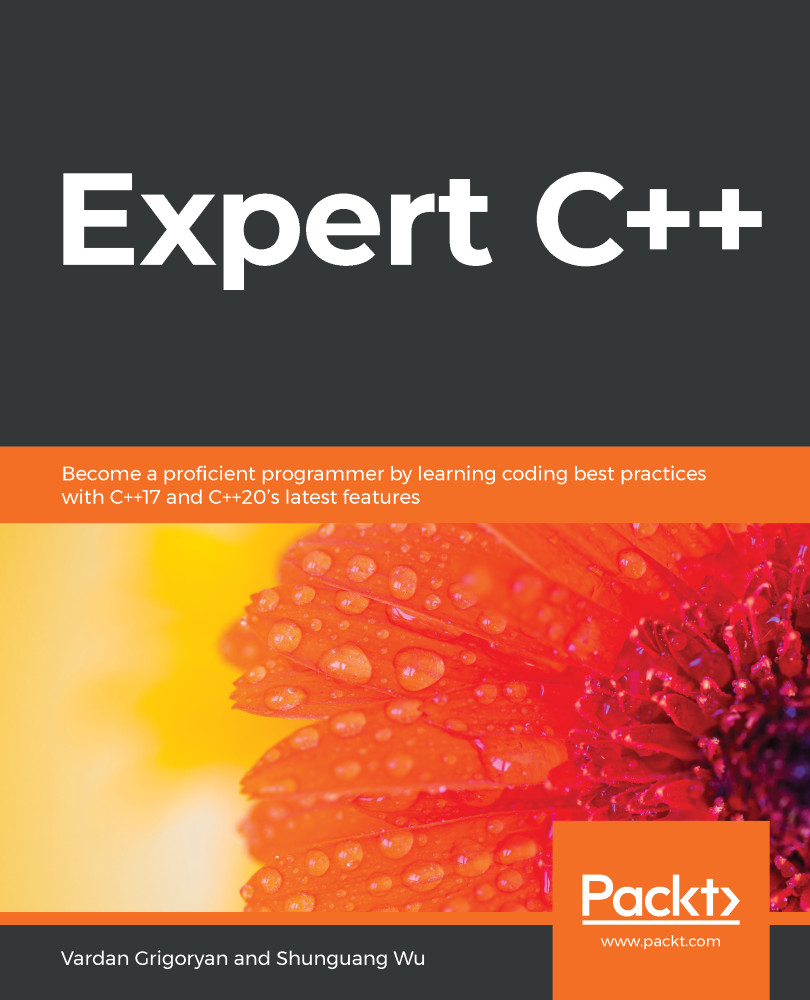Most of the time, we operate with a collection of data grouped under a certain name, thus making an abstraction. Variables such as is_military, speed, and seats don't make much sense if they're perceived separately. Grouping them under the name with spaceship changes the way we perceive the data stored in the variables. We now refer to the many variables packed as one single object. To do so, we use abstraction; that is, we collect the individual properties of a real-world object from the perspective of the observer. An abstraction is a key tool in the programmer's toolchain as it allows them to deal with complexity. The C language introduced the struct as a way to aggregate data, as shown in the following code:
struct spaceship {
bool is_military;
int speed;
int seats;
};
Grouping data is somewhat necessary for object-oriented programming...


